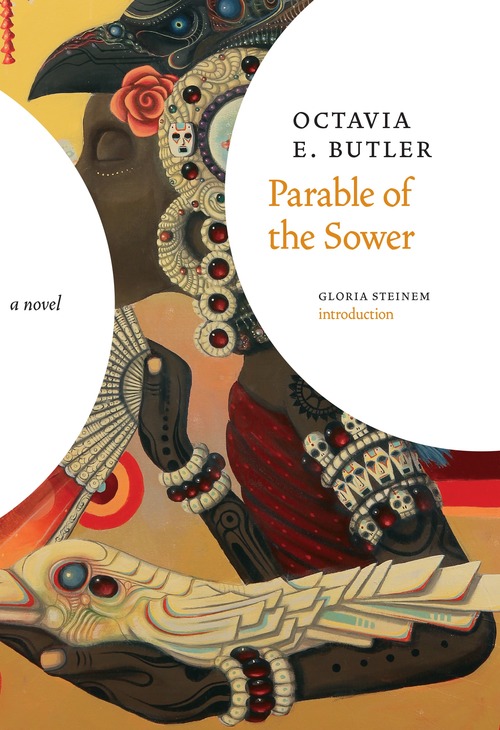“In her fine new novel, Parable of the Sower, Octavia E. Butler accepts a more difficult challenge: poising her story on the brink of change, she tries to imagine a new social order at its moment of conception... As a novel, ‘The Parable of the Sower’ also succeeds on multiple levels. A gripping tale of survival and a poignant account of growing up sane in a disintegrating world, it is at bottom a subtle and disturbing exposition of the gospel according to Lauren: ‘The only lasting truth is Change. God is Change.'”
– Gerald Jones, The New York Times Book Review
“Literate ... thoughtful. And a real gut-wrencher.”
– Washington Post Book World
“A powerful story of hope and faith in the midst of urban violence and decay ... Excellent science fiction and a parable of modern society.”
– Denver Post
“A prophetic odyssey.”
– Essence
“Simple, direct, and deeply felt.”
– Library Journal
“Artfully conceived and elegantly written.”
– Cleveland Plain Dealer
“There isn't a page in this vivid and frightening story that fails to grip the reader.”
– San Jose Mercury News
“I’d love to see Octavia E. Butler’s novel PARABLE OF THE SOWER read in more high school English classes. It’s a brilliant, endlessly rich dystopian novel that pairs well with '1984' or 'The Handmaid’s Tale,' and it’s also a fascinating exploration of how crises can fuel new religious and ideological movements.”
– John Green, author of “Turtles All the Way Down”, The New York Times Book Review
“I have found myself returning to Parable of the Sower and Butler's other writings many times over the years to help make sense of things, to find in her stories lessons to guide my own life… The novel offers a dystopian warning that if we, the human race, continue along our current path, then unimaginable horrors await us. But, in truth, such a narrow interpretation is a mistake. It misses the invitation to embrace the essential message of Butler's work, that the only constant life has ever offered us is change.”
– Ramtin Arablouei, NPR, Throughline
“Butler tells her story with unusual warmth, sensitivity, honesty and grace; though science fiction readers will recognize this future Earth, Lauren Olamina and her vision make this novel stand out like a tree amid saplings.”
– Publishers Weekly
“The scariest book I’ve ever read is Octavia E. Butler’s near-futuristic ‘Parable of the Sower.’ Much of Butler’s work is frightening because it feels so plausible and true, even when she’s writing about aliens or vampires. But this book’s dystopia of walled-off communities, useless government, unchecked violence and corporate slavery feels like the waiting headlines of tomorrow — and too many of our headlines today… But Butler forced me to grow stronger as I read. Despite the horror of its prescience, the stubborn optimism that burns at the core of ‘Parable of the Sower’ helps me face our true-life horrors. As Butler wrote, ‘The only lasting truth is Change.’”
– Tananarive Due, author of "My Soul to Keep", The New York Times Book Review
“In the ongoing contest over which dystopian classic is most applicable to our time… for sheer peculiar prescience, Butler’s novel and its sequel may be unmatched... In the day to day of the Parable books, hyperempathy is a liability that makes moving through the world more complicated and, for tactical reasons, requires those who have it to behave more ruthlessly... In her lifetime, Butler insisted that the Parable series was not intended as an augur. ‘This was not a book about prophecy,’ she said, of 'Talents,' in remarks she delivered at M.I.T. ‘This was a cautionary tale, although people have told me it was prophecy. All I have to say to that is: I certainly hope not.’”
– Abby Aguirre, The New Yorker, "Octavia Butler’s Prescient Vision of a Zealot Elected to “Make America Great Again"






